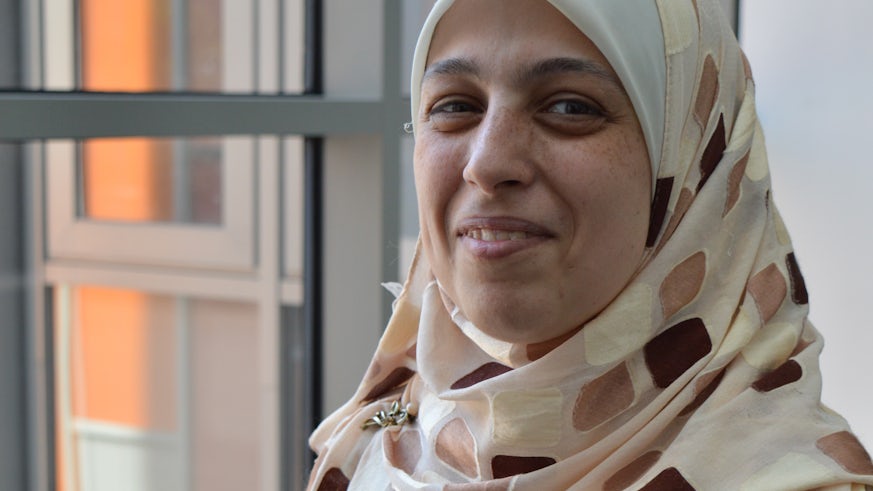Ovarian Cancer Awareness Month
3 March 2017

Ovarian cancer is the biggest gynaecological killer of UK women, with UK survival rates amongst the worst in Europe. March is Ovarian Cancer Awareness Month, which aims to increase awareness of the disease in order to drive forward improvements in detection, treatment and ultimately survival.
We caught up with Noha-Ehssan Mohamed, a PhD student at the European Cancer Stem Cell Research Institute, whose work is focused on Ovarian Cancer.
Could you tell us a bit about your academic background?
I am originally from Egypt where I studied a BSc in Pharmacy, followed by an MRes in Pharmaceutical Biochemistry. I then decided to do my PhD in Cancer Biology which is how I came to be at the Institute.
Why did you make the switch to Cancer Biology?
In Egypt, there is a high prevalence of cancer (as there is in most countries around the world), but there isn’t a solid base for cancer research in the country. I’m hoping that I can take what I learn here back to Egypt to help benefit the country. As a Pharmacist by training, I want to have drugs that treat people effectively. But to do this, we first need to have models on which to test potential therapies, which is why I’m here.
Can you explain what your PhD is focused on?
My work is based around exploring the relationship between different genes and tumour development / progression. In particular, my PhD is focused on trying to understand the effects of the Apc2 gene on normal ovarian homeostasis, as well as the development and progression of tumours.
I’m also working to establish a tumour model here in Cardiff that can be used in pre-clinical studies. This tumour model was developed in US and we will be the first group to use it in UK. We are using it now to explore the effects of APC2 on ovarian endometrioid adenocarcinoma. We are planning to use it in the future to test the efficacy of different drugs on this type of ovarian cancer.
My area of research is unique within the Institute, and there is only a very small number of emerging research groups working on this in the whole of the UK. It is still a fairly new area of study in the country and it is really exciting to be involved in it.
What does a typical day involve?
A typical day for me is quite varied. As well as checking on the development of any tumours, I also perform experiments in the lab, starting from examining tissues under the microscope up to using sophisticated techniques to discover molecular mechanisms. A large part of my time is also spent on developing and refining methods, and writing up my findings.
What do you like best about working at the Institute?
Working at the Institute has been hugely beneficial, providing me with the opportunity to perform science to an excellent standard. There are lots of experienced researchers in the Institute working on different types of cancer. The daily interaction with those researchers greatly inspires me and provides me with ideas which I can then apply to my own work.
What are your future plans?
Going forward, I plan to continue basic research exploring cancer biology as well as using the developed tumour models in pre-clinical research to develop new treatments to tackle cancer. Ultimately, one day, I hope that my research will help to achieve better prognoses for Ovarian Cancer patients.